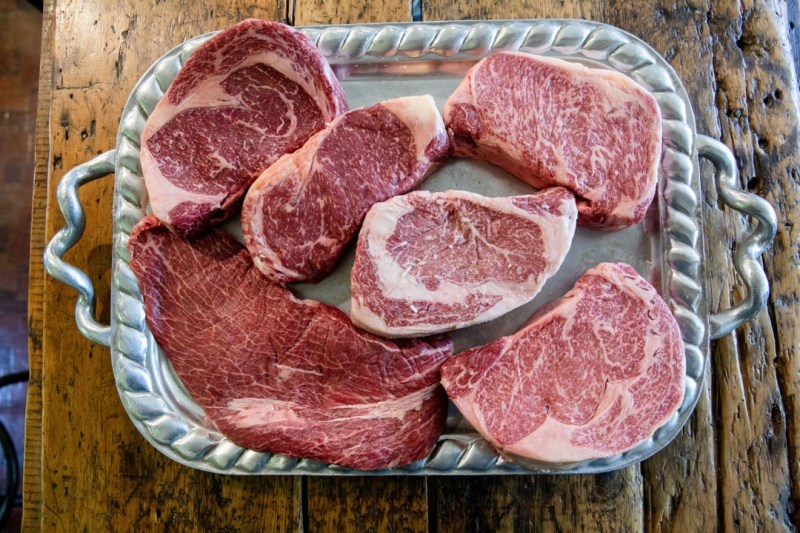
You’re probably very familiar with the term “Wagyu beef,” even if you aren’t entirely sure what it is. Of course, it’s known for being one of the pricier options on the menu, but that added cost is entirely justified once you’ve had a taste of the deliciously marbled, oh-so-tender, succulent piece of perfection a Waygu steak is.
What is Waygu?
Wagyu is a specific breed of Japanese cattle known for their intensely marbled beef. To know beef is to know that fat equals flavor, and Waygu is the King of perfectly marbled fat. Not the gristly, chewy, rubbery chunks that we sometimes associate with beef fat, but the buttery, melty, sinfully juicy, life-giving flavor of succulent fat that makes a steak otherworldly in its deliciousness.
Unfortunately, due to its increased popularity in recent years, great Waygu beef is getting more difficult to find. Cheap copycats and cattle inbreeding have led to more sub-par beef on the market, and it’s easy to get confused.
Thankfully, these two farms are doing Waygu right.

Vermont Wagyu
Vermont Wagyu is a family-run, woman-owned Wagyu farm that has expertly maintained generations of expert Wagyu breeding for the past sixteen years. The farm’s 100% DNA parent-verified full-blood Wagyu cattle are entirely traceable to the four ancestral lines of Black Wagyu: Tajira/Tajima, known for their marbling; Shigenami, Tottori, and Kedaka, known for their larger frames and good nature; and Fujiyoshi, known for improved milk and larger frames.
Vermont Wagyu produces some of the best beef in the world by pushing the boundary on taste through restorative agricultural management, low-stress handling practices, and data-focused breeding of their Japanese Black Cattle.
The impressive online storefront makes buying your Wagyu simple, with a huge assortment of cuts, both individual and grouped, for bulk purchases. There’s even a subscription box that includes a rotating selection of 100% Full-Blood Wagyu. Quarterly selections include seasonal favorites, as well as a bonus item from one of Vermont Wagyu’s favorite culinary producers. One box last year included One tri-tip, one small skirt steak, two packages of maple breakfast sausage, three tenderloin tails, one flask of Udder Gold maple syrup, one package of North Country Smokehouse Bacon, and a one-pound bag of coffee from Flying Crow Coffee Roasters. Talk about a great gift.
Kow Steaks
KOW Steaks founders Jon Urbana and Craig Zimmerman are sixth-generation farmers with a mission to pass on their values and pride in raising, sourcing, and delivering the most sought-after steaks from ranch to table. With over 125 years of family history at the heart and soul of their business, these two have created an absolutely remarkable Waygu business that is beloved by some of the world’s most notable chefs like Nobu Matsuhisa and David Chang. Renowned restaurants like Strip House, Delmonico’s, BLT Steak, The Grill, The James Beard House, The Gotham Burger Social Club, Bistrot Leo, and Boucherie are also known for serving KOW Steaks.
By leveraging the experience and expertise from past generations, KOW is able to optimize, source, and deliver an elite product while continuing to instill the family values of raising and handling livestock the right way.
KOW’s online butchershop boasts absolutely gorgeous Wagyu pieces from massive Tomahawk Ribeyes to melt-in-your-mouth beef jerky that comes in several flavors, including steakhouse, sweet gogi, classic steak, maple bourbon, premium steak, vintage sunshine, and sweet & smoky. We’ll take one of each, please, and thank you.




